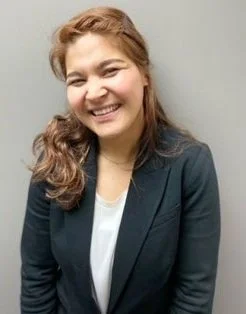Women’s History Month: Interview with Tahera Hussain of Regina Immigrant Women Centre
Tahera Hussain
REM spoke with Tahera Hussain, the intake officer at the Regina Immigrant Women’s Centre, and she shared the importance of RIWC’s impact in Regina’s community. Regina’s Immigrant Women Centre is an amazing community group that supports newcomer women and families in Regina.
What’s your story?
I am 26 years old, and moved to Regina in 2008 from Afghanistan. Currently, I am a student at the University of Regina, taking political science. I have been involved with Regina Immigrant Women’s Centre since I moved here, and eventually began working here, and my current title is an intake officer. I also work at the Legislative Assembly of Saskatchewan as a page.
What led you to being involved in RIWC?
I have been involved with RIWC almost since I moved here. I became a client of RIWC in 2008 by taking the drop in english conversation class. At the time, because of my residency status, it was the only opportunity for me in Regina to develop my english. When I was in high school, I started volunteering at RIWC. In 2018, when I was in university, I took a summer student program for two years. Then I got the permanent job as a client assistant, and now I am the intake officer.
RWIC English for work program.
What has been the most inspiring moment you’ve seen in the community with RIWC?
I get to see the impact that RIWC has on women everyday. I see that RIWC empowers women and their families, by providing tools they need to thrive in the community. For example, most of the employees here used to be clients or be involved with RIWC in some way. It’s beautiful to see, we are like a family.
Can you discuss some of RIWC programs and initiatives?
We have a range of programs for new women in Regina, to help women deal with the culture shock, and give them the tools to become a thriving community member. We have English classes for individuals with Permanent Residency, and non Permanent Residency. We have employment classes for women, youth, and older workers, which is for both men and women. We have programs for women and their children, and senior programs. This includes cooking classes, sewing workshops, recreation through art, and wellness initiatives.
RIWC Sewing Program
What do you want Regina to know about you organization?
That we are here to help immigrant women and families. We will welcome you with open arms and a smiling face. We help give the tools for women to have a successful transition into living in Regina, and thrive within the community.
How can immigrant women navigate power structures within Saskatchewan?
Many of these women are coming from places where they have more freedom in Canada. There is culture shock that comes with that, but personally I think the power dynamics here are more evenly spread as compared to some other countries. Many other countries are more patriarchal. Here, the roles for men and women can be shared when it comes to work and household life. Women just need the resources to learn how to navigate in a new community.
RWIC Course.
What are the biggest barriers women face in Regina? How can Regina’s community improve on this?
The challenges of learning a new language, in combination with a lack of job experience for new immigrants. The access to classes and workshops is what helps these women become successful in a new environment. The biggest barrier to this is that access to these classes can be restricted by the residency status of individuals. I think we need more access to newcomers to access classes without being held back by their immigration status. RIWC has a program that I took when I first moved here, but there is always a long wait list as we are the only place that offers an English class without restrictions of immigration status.
What are the long-term consequences if we ignore the voices of immigrant women?
Women’s voices need to be listened to and we cannot leave them behind. The consequence of ignoring their voices makes a woman have low self confidence. That can lead to intergenerational struggles with women raising families, and their roles in society. Supporting women now, makes for a better future.
What part of the impact you’re making makes you most proud?
(Tahera paused and teared up when thinking about the answer to this question, she pointed out that they are happy tears). I am proud in knowing that I am in a position to help women by providing resources and information. When I came here, I was in their position, I was the one needing help, and now with my experiences, I can give back and help newcomers. I would like to say that I give them some hope as they are trying to settle into a new life.
What motivates you?
I am motivated by helping people and knowing that I might be making a difference in their lives as I try to help newcomers with their needs. Being able to support women and families integrate into their community, and seeing them become successful is inspiring.
RWIC Wellness Initiative.





